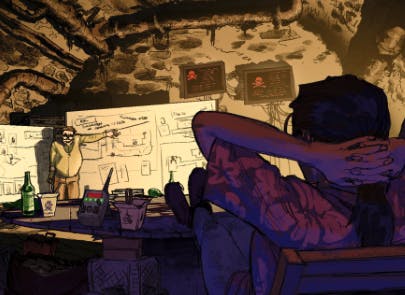Many of us who grew up learning and playing music did it backward—or at least that’s how I see it. Playing an instrument should be a means to an end and not an exercise in technique. Communicating via song is the end goal, but the rudiments of playing an instrument take up the first few years of our education and often become so much of a burden that we simply drop the instrument altogether. As adults, we should keep this in mind and learn or relearn the skills we need to accomplish our goals.
This idea was reinforced to me during a recent conversation with the French composer and multimedia creator Felix Carcone, who takes the principle of means to an end to the extreme. We discussed his musical journey and his participation in the creation of two immersive experience shows that take place in downtown Paris.
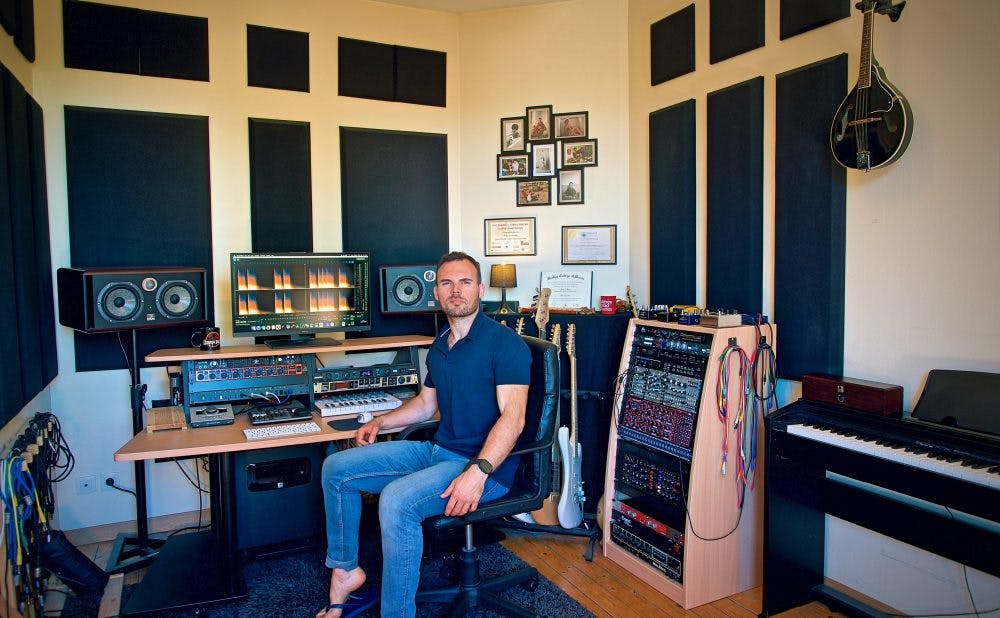
As a teenager, Felix began to play jazz and fusion guitar as an outlet for his creative energy. He was a co-finalist for the international 2012 “Six-String Theory” competition (organized and judged by the great Lee Ritenour and Berklee + Yamaha. Felix also began producing full arrangements on a Yamaha midi workstation (the QS300) and his interest in music led to a conservatory education in harmony, composition, and musicology, with a focus on the music of the iconic film composer John Williams. Felix continued on to complete a second Master’s degree—Berklee’s Master of Music in Scoring for Film, Television, and Video Games in Valencia, Spain.
Felix worked hard at the traditional art of composing and arranging in his mind and on paper—not using a midi sequencer to flesh out the individual parts of an orchestration. He says “[At Berklee] We were writing and recording arrangements every week, and I was creating melodies and harmony while I was walking between home and school. Then I would enter them right into Finale (notation software), only sometimes using a DAW to put down ideas.” Felix says “ Of course I use Cubase, Reason, and Izotope RX to record and edit ideas for projects I collaborate on, but for writing melody and arrangements, I write in my head plus singing lines and playing the piano. I write it down on paper, I don’t usually play into the DAW.” Already an accomplished arranger, Berklee’s program taught Felix how to organize and conduct a live orchestra session and how to manage the production of a complex project.
Upon returning to France after school, Felix reunited with his friends, brothers Remy and Joris Aufray, and started a production company called Borderlive Concepts to develop live theater experiences. Their inspirations weren’t traditional theater, but more the cinema and video games. Over the course of about three years, the team developed and launched their first show “The Live Thriller,” a theater experience where a small audience participates in a criminal investigation. The show takes place in multiple locations around the 18th district of Paris and incorporates live actors, film-like movies, and immersive music and sound design.
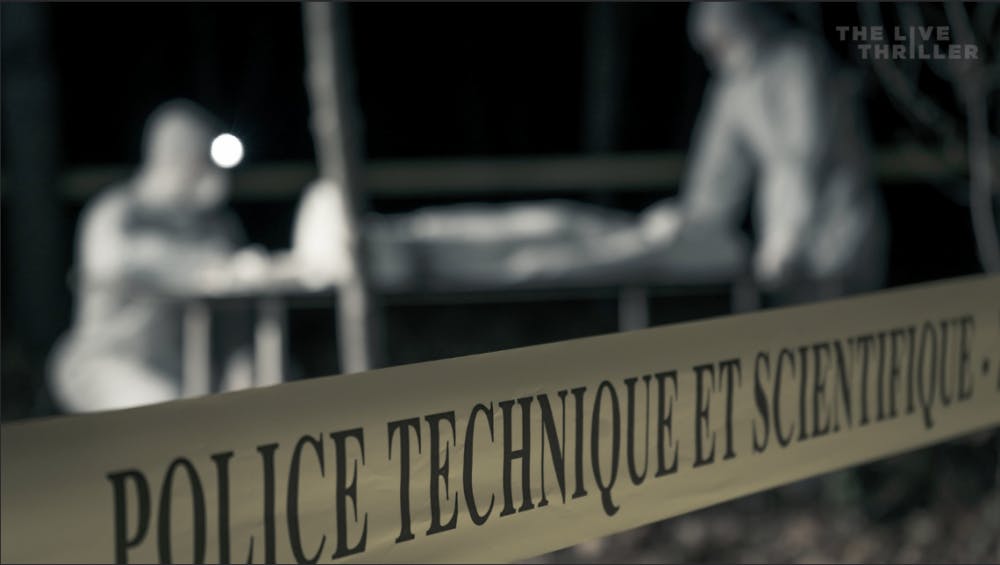
For the development of the show, Felix obviously put his music abilities to use but also had to learn how to create an interactive experience for an audience that could influence the progress and outcome of a live theater show. Borderlive’s team shot and edited video footage around Paris and Felix composed music that was recorded with a live orchestra. 30 musicians performed the score in Budapest and Felix also recorded orchestral soundscapes that he edited in iZotope RX and Melodyne to create interesting sound elements and textures.
The idea of means to an end truly came into play when Felix and his team had to devise a custom playback system that could control the musical and visual elements that accompany the live, fluid show. “The Live Holdup,” for instance, divides the audience/players into three different and collaborative paths, and their interaction guides the show to one of the multiple possible endings. Some amount of off-the-shelf theater automation could be used, but this show requires much more control than is typically possible with stock packages.
Felix offers, “The Live Thriller show is pretty straightforward, with media that plays during the show, but for our second show ‘The Live Holdup’ it’s way more complicated,” He continues, ”For that, I had to learn code. Real code; C++, Javascript, NodeJS, and networking protocols. I taught myself programming in one year, which was exhausting, but it was so interesting. At the start, many things were triggered manually, but now things happen as a more automated process.”
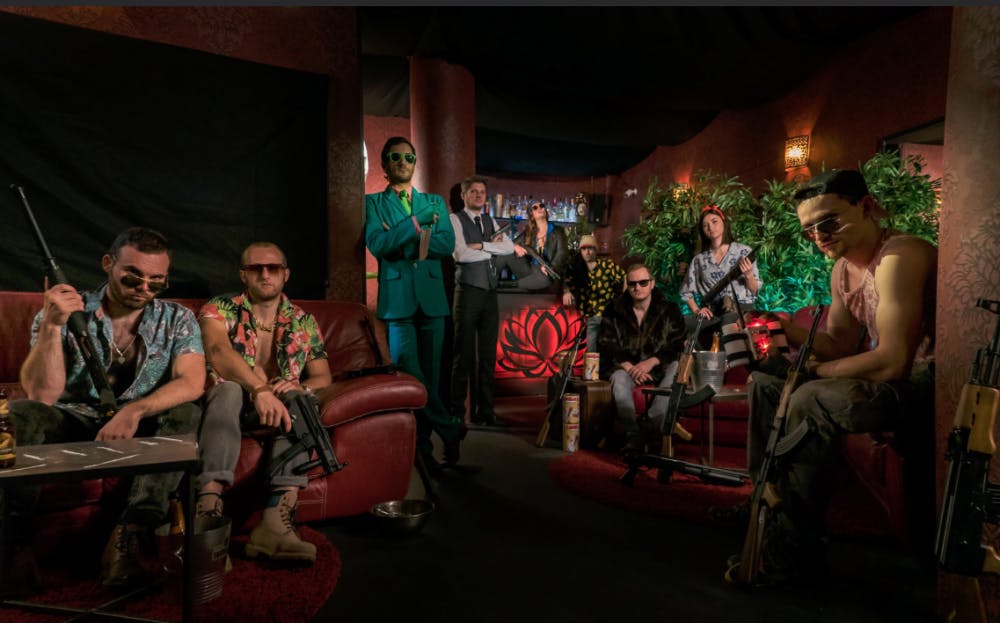
The shows took a break during COVID, but as of the middle of June (2021), “The Live Thriller” and “The Live Holdup” are resuming performances. During the lockdown, Felix says, “We have been able to clean up some of the elements of the show that we couldn’t change while the shows were fully booked.” Over a recent ZOOM call, Felix and I had a chance to talk about his composing process and studio setup.
Felix: Creating the live show was a super-interesting experience, especially for a composer like me. I had the opportunity to write the music and sounds for my own movie. Of course, I have to please my partners, but it’s really a full suite of creative things.
Adam: Tell me about your music studio setup.
Felix: I have had tinnitus for many years from playing guitar in the studio, so I’m super careful with my ears. Mixing, for me, is complicated. The two most important things in my studio are my Focal Twin 6 speakers and my Sonarworks software. With the Focals, I’m not afraid of the high-end anymore. Before I was scared, especially with hi-hats and bright things! With the Focals and Sonarworks, I can be sure that everything is correct in the frequency response and there are no weird peaks, which I’m very careful of.
People should know that Sonarworks is not only for accurate monitoring but also for ear health. For the average producer, the room is a big problem and you don’t know how much it affects you until you try Sonarworks calibration, which changes everything. With Sonarworks, I am less tired and I can work longer and at a lower volume—even in this converted bedroom which is not like a professional studio.
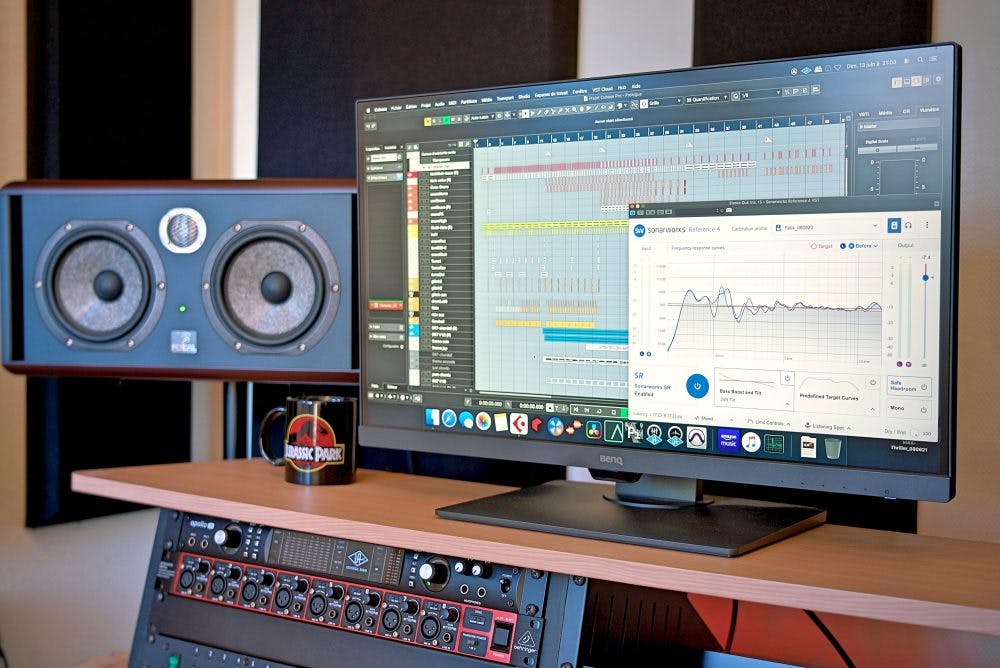
Over the past two years, I’ve really simplified my setup. I’ve found that software synths are the best for me. When there’s too much stuff in my studio I’m not focused—it’s a trap. I have a whole rack of hardware stuff, which is so cool, and I have too many guitars! I have some great guitar pedals from Strymon and Chase Bliss and the old Mesa Boogie studio preamp from the ‘80s. Even for guitar, I have to be careful not to fall into the trap of gear, so I use the UAD plugins a lot for that. I have some modular synthesizers now but I have to calm down a bit because that’s a black hole. I also have some vintage keyboards— the Roland D20, and a Yamaha DX7.
For my DAWs, I use Cubase, Reason, and sometimes Pro Tools, but I really rely a lot on iZotope RX for editing and sound design.
Adam: Do you have a specific interface or monitor controller that you like?
Felix: I have a complete Universal Audio system. I have the Apollo 8 in the rack, the Apollo Twin on my desk, and the Apollo Satellite with all the best UAD plugins. I also have a good power conditioner, which is very important.
Adam: You’ve had amazing success creating these live shows— from writing and designing the show to creating the audio and video, what’s next for you?
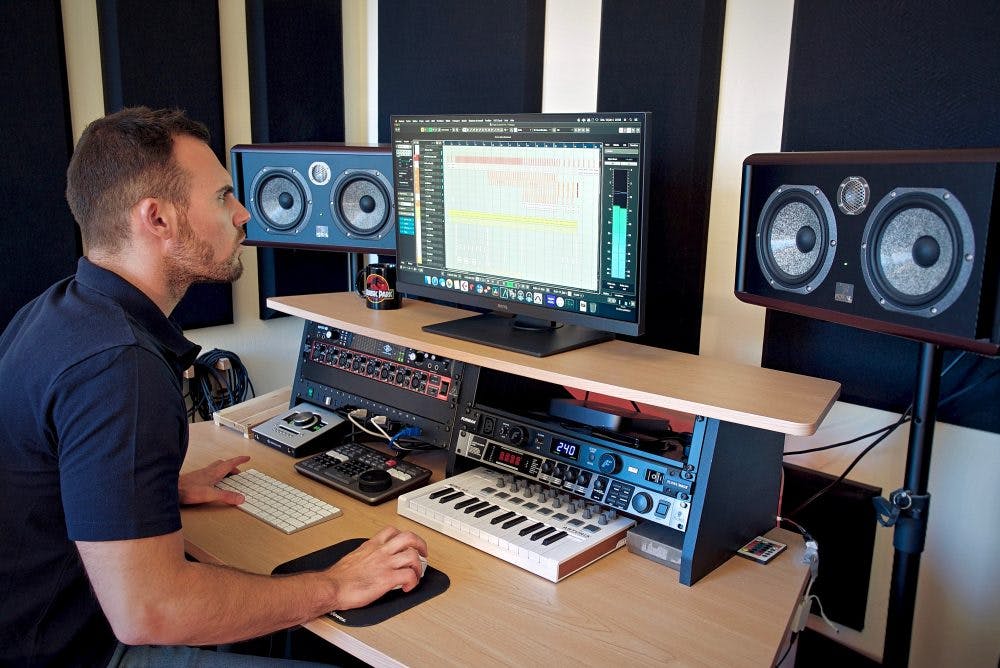
Felix: I have some ideas for interactive performances in museums and stuff. My books here by my bed include one about Processing and “The Nature of Code,” which is a famous book by Daniel Shiffman, where you learn how to compute natural systems and behaviors, like birds and interactions between objects and events—like gravity. It’s super interesting and I just want to be able to express myself. It might be a live show with music, or an orchestra recording, or creating some lines of code, but it’s always about expression. I need to express myself. That’s why I taught myself all of that stuff. Of course, it’s a trap. We all have a problem and my problem is too much curiosity!
——————-
More information about “The Live Thriller” and “The Live Holdup” experiences can be found on the Borderlive Productions website.
Felix Carcone’s Soundcloud page with music from “The Live Thriller”
Follow Felix on Instagram and stay tuned about future projects!
